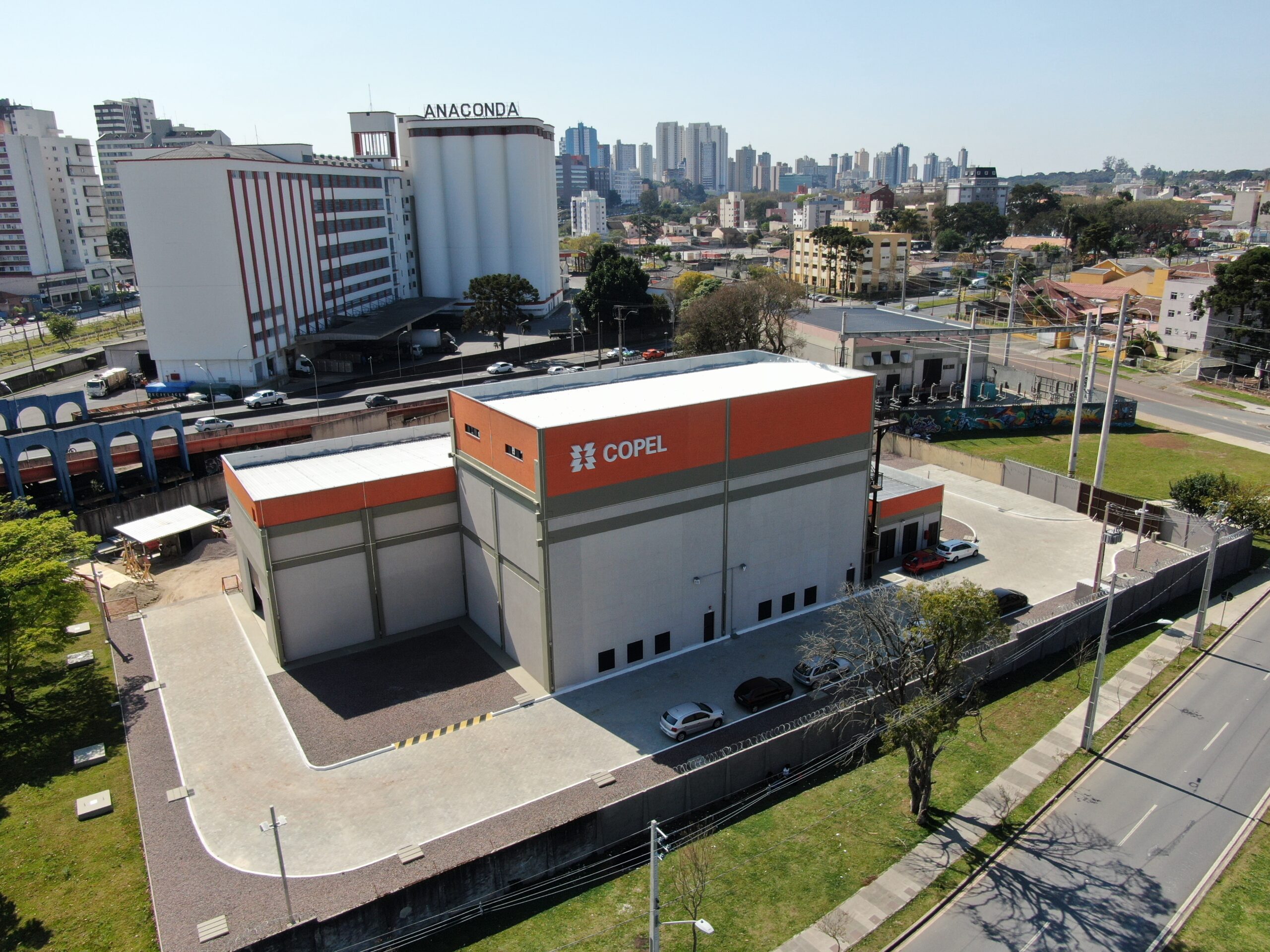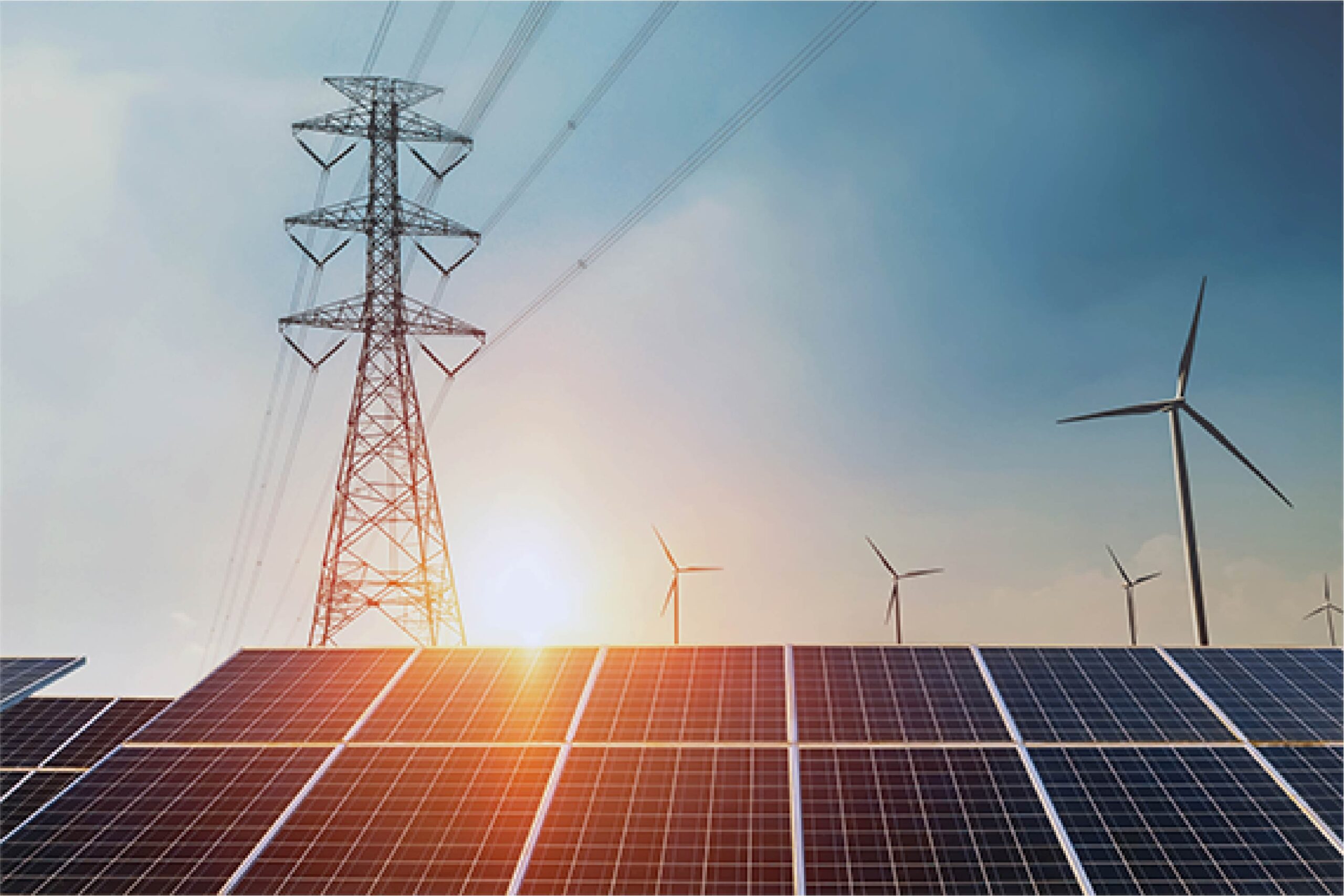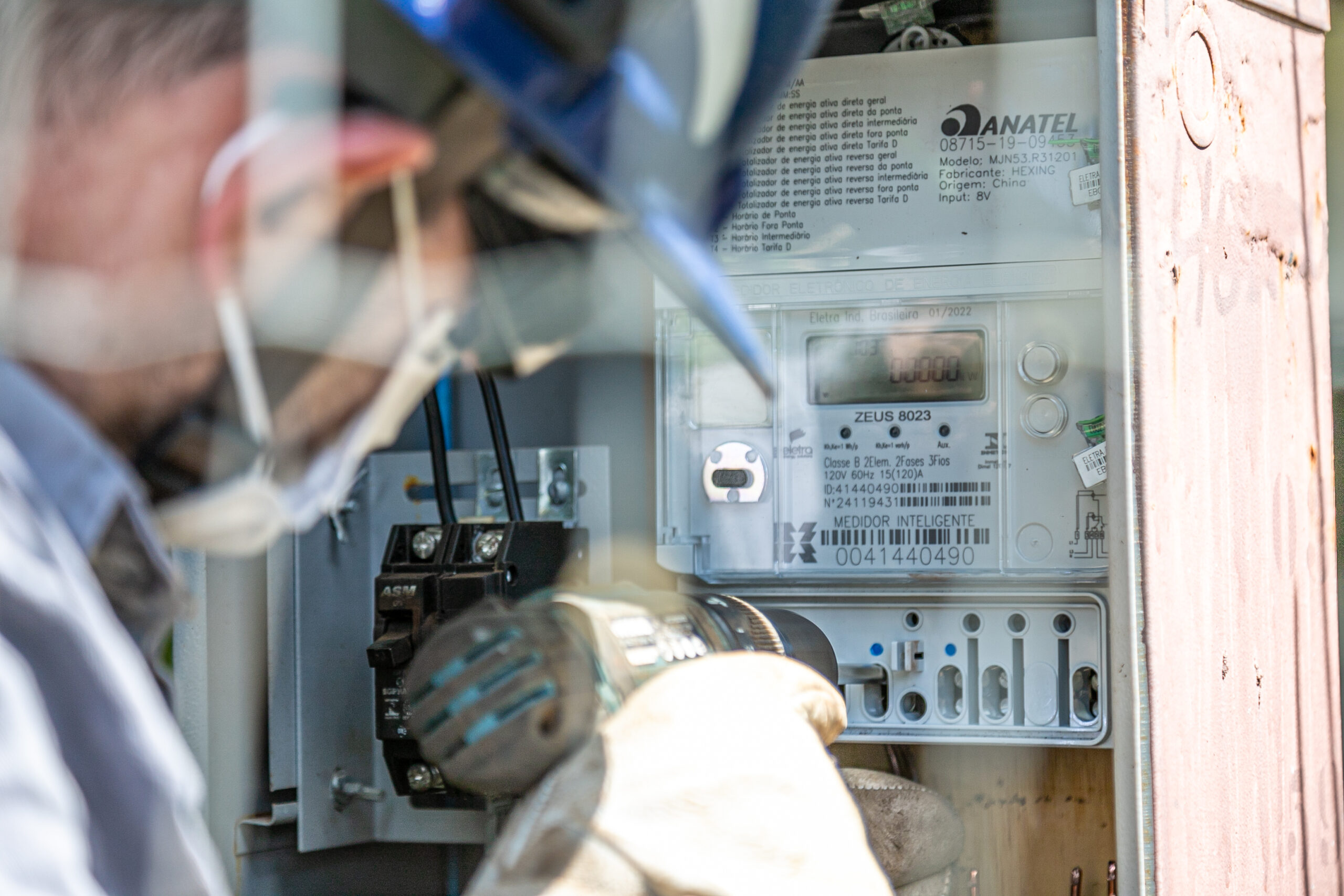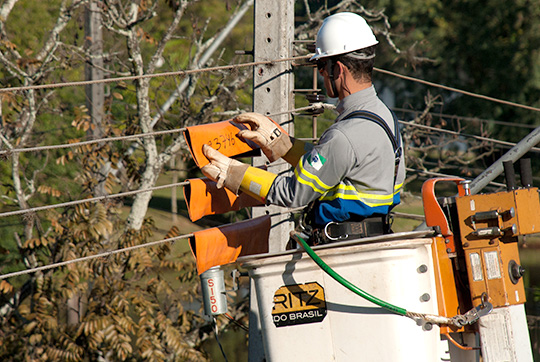Operational Efficiency
The commitment to the supply of clean and accessible energy, sustainable development and the public interest that justified the creation of the Company have always guided Copel’s concern with the best performance of its projects in the pursuit of excellence in services provided to society, characterized by efficiency operating in the generation, transmission and distribution of energy, as well as in the conscious use of natural resources and prioritization of renewable sources.
The main direct impacts of operational efficiency are related to the installed capacity and infrastructure potential for the expansion of productive sectors (agriculture, industry, commerce and services) and the country’s economic growth; health and well-being of the population; tariff affordability; economic-financial performance; Clients satisfaction; legal and regulatory obligations.
The operational efficiency of the business is a commitment of the Company to customer satisfaction in relation to the quality of services and affordability, which directly depends on the construction and maintenance of systems, whose quality and reliability guarantee less use of natural resources, greater delivery of energy and positive impacts on reputation by stakeholders, mainly customers, employees, regulatory environment, investors and shareholders.
The regulatory environment requires minimum levels for the continuity of the concession and the rules of the regulatory agents of the electricity sector, as well as the socio-environmental regulatory bodies, provide for severe monetary sanctions in case of non-compliance, which result in direct financial losses for the shareholders and indirect for the company. society.


Among the main objectives of Copel’s Strategic Planning, operational efficiency is a condition for the continuity of the Company’s business, as it ensures greater availability of the set of assets and results in lower costs and, consequently, better economic and financial performance.
In this sense, operational efficiency is in line with Copel’s efforts in favor of sustainability in the environmental, social and governance dimensions, including economic aspects, valuing specialized labor, use of new technologies, exchange of good practices, innovation, research and development.
The management of operational efficiency at Copel is carried out in accordance with the guidelines, objectives and goals defined by senior management in the Company’s Strategic Planning, and aims to achieve the performance of the best companies in the sector and constantly seek to optimize costs. For this, a Management Agreement is signed with each wholly-owned subsidiary of Copel (Holding), which use their areas dedicated to the management of operational efficiency to monitor and control the established performance metrics, considering the different specificities of each operation.
Seeking excellence, operational efficiency is evaluated in the certification processes. Currently, Copel has an Integrated Management System with ISO 9001, 14001 and 45001 certifications in the operation and maintenance processes of the electric energy generation infrastructure, and ISO 9001 in the operation and maintenance processes of the electric energy transmission and distribution infrastructure.
Distribution Business
It is worth noting that, in the distribution business, operational efficiency is required by concession contracts in the form of indicators of continuity, quality and financial sustainability. Any violations are subject to sanctions, which may even result in the initiation of a forfeiture process for contractual default.
In this sense, expanding and maintaining the distribution system is a vital tool for maintaining distribution operations. To this end, studies are carried out, based on the methodologies of the National Electric Energy Agency (Aneel) and other agents in the sector, which consider the projection of consumer market growth, the existing and future generation potential, and the characteristics of the equipment that make up the electrical system, variables that result in different operating scenarios, digitally simulated.
Such scenarios are used to define the necessary works, whether for the construction of new distribution substations, high or medium voltage distribution lines, or the installation of regulation and switching equipment.
Innovation
Operational efficiency is also the object of the Company’s open innovation program, Copel Volt, and of research and development projects related to Aneel, through which Copel applies technology as a differential for the optimization and transformation of the business, such as, for example, digitization of operation and maintenance processes.
In this sense, the company discloses its results periodically, which can be checked in the Results Center on the Investor Relations page and in the Annual and Social-Environmental Reports.

Eletricity Reliability
Remotely monitored and integrated with other operating devices, the smart meter allows Copel to monitor the quality of supply to consumer units based on variables such as voltage, electric current and power, anticipating possible failures, as well as helping to accurately locate the point where the network outage occurred, isolate the defect and quickly dispatch a team to the problem location.
Energy Losses


Smart Meters
Remotely monitored and integrated with other operating devices, the smart meter allows Copel to monitor the quality of supply to consumer units based on variables such as voltage, electric current and power, anticipating possible failures, as well as helping to accurately locate the point where the network outage occurred, isolate the defect and quickly dispatch a team to the problem location.
Infrastructure Programs
Copel’s infrastructure programs in generation, transmission and distribution have a direct impact on the quality of life of citizens. Between 2019 and 2025, Copel intends to conclude three major programs for the modernization of Copel’s distribution networks: the Paraná Trifásico, the Redes Elétricas Inteligentes (Smart Grid) and the Confiabilidade Total.





